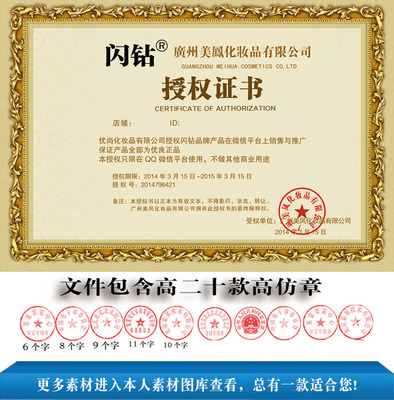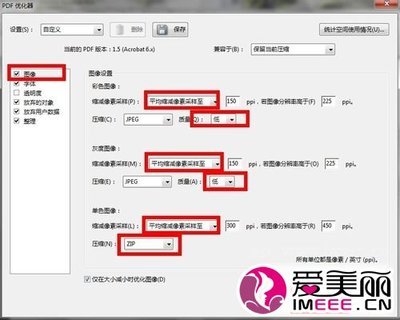
査德,L. A. Zadeh(Lotfi A. Zadeh)
L. A. Zadeh (1921~ )
美国自动控制专家,美国工程科学院院士。1921年2月生于苏联巴库。1949年获哥伦比亚大学电机工程博士。现任伯克利加利福尼亚大学电机工程与计算机科学系教授。因发展模糊集理论的先驱性工作而获电气与电子工程师学会(IEEE)的教育勋章。
扎德在控制理论方面有重要贡献。1949年他在关于时变网络频率分析的博士论文中引入的时变变换函数的概念,后来成为线性时变系统分析的工具。1950~1952年他和J.拉加齐尼合作,推广了维纳预测理论,在设计有限存储滤波器和预测器中得到广泛应用。他们发展的采样控制系统的Z变换逼近,成为分析这类系统的标准方法。1953年他给出一种设计非线性滤波器的新的逼近方法。1963年他和C.A.德舍尔合著的《线性系统的状态空间理论》是该领域的经典著作。书中介绍的状态空间逼近已成为最优控制中的标准工具,广泛用于工业机器人和社会经济系统。1965年,扎德在《信息与控制》杂志第8期上发表《模糊集》的论文,引起了各国数学家和自动控制专家们的注意。他通过引进模糊集(边界不明显的类)提供了一种分析复杂系统的新方法。他提出用语言变量代替数值变量来描述系统的行为,使人们找到了一种处理不确定性的方法,并给出一种较好的人类推理模式。20年来他所开创的模糊集领域得到了迅速发展。
下面的来自http://www.cs.berkeley.edu/~zadeh/scv.html
Curriculum Vitae
Lotfi A. Zadeh joined the Department of Electrical Engineeringat the University of California, Berkeley, in 1959, and served asits chairman from 1963 to 1968. Earlier, he was a member of theelectrical engineering faculty at Columbia University. In 1956, hewas a visiting member of the Institute for Advanced Study inPrinceton, New Jersey. In addition, he held a number of othervisiting appointments, among them a visiting professorship inElectrical Engineering at MIT in 1962 and 1968; a visitingscientist appointment at IBM Research Laboratory, San Jose, CA, in1968, 1973, and 1977; and visiting scholar appointments at the AICenter, SRI International, in 1981, and at the Center for the Studyof Language and Information, Stanford University, in 1987-1988.Currently he is a Professor in the Graduate School, and is servingas the Director of BISC (Berkeley Initiative in SoftComputing).
Until 1965, Dr. Zadeh's work had been centered on system theoryand decision analysis. Since then, his research interests haveshifted to the theory of fuzzy sets and its applications toartificial intelligence, linguistics, logic, decision analysis,control theory, expert systems and neural networks. Currently, hisresearch is focused on fuzzy logic, soft computing, computing withwords, and the newly developed computational theory of perceptionsand precisiated natural language.
An alumnus of the University of Teheran, MIT, and ColumbiaUniversity, Dr. Zadeh is a fellow of the IEEE, AAAS, ACM and AAAI,and a member of the National Academy of Engineering. He held NSFSenior Postdoctoral Fellowships in 1956-57 and 1962-63, and was aGuggenheim Foundation Fellow in 1968. Dr. Zadeh was the recipientof the IEEE Education Medal in 1973 and a recipient of the IEEECentennial Medal in 1984. In 1989, Dr. Zadeh was awarded the HondaPrize by the Honda Foundation, and in 1991 received the BerkeleyCitation, University of California.
In 1992, Dr. Zadeh was awarded the IEEE Richard W. Hamming Medal"For seminal contribu tions to information science and systems,including the conceptualization of fuzzy sets." He became a ForeignMember of the Russian Academy of Natural Sciences (ComputerSciences and Cybernetics Section) in 1992 and received theCertificate of Commendation for AI Special Contributions Award fromthe International Foundation for Artificial Intelligence. Also in1992, he was awarded the Kampe de Feriet Prize and became anHonorary Member of the Austrian Society of Cybernetic Studies.
In 1993, Dr. Zadeh received the Rufus Oldenburger Medal from theAmerican Society of Mechanical Engineers "For seminal contributionsin system theory, decision analysis, and theory of fuzzy sets andits applications to AI, linguistics, logic, expert systems andneural networks." He was also awarded the Grigore Moisil Prize forFundamental Researches, and the Premier Best Paper Award by theSecond International Conference on Fuzzy Theory and Technology. In1995, Dr. Zadeh was awarded the IEEE Medal of Honor "For pioneeringdevelopment of fuzzy logic and its many diverse applications." In1996, Dr. Zadeh was awarded the Okawa Prize "For outstandingcontribution to information science through the development offuzzy logic and its applications."
In 1997, Dr. Zadeh was awarded the B. Bolzano Medal by theAcademy of Sciences of the Czech Republic "For outstandingachievements in fuzzy mathematics." He also received the J.P. WohlCareer Achievement Award of the IEEE Systems, Science andCybernetics Society. He served as a Lee Kuan Yew DistinguishedVisitor, lecturing at the National University of Singapore and theNanyang Technological University in Singapore, and as theGulbenkian Foundation Visiting Professor at the New University ofLisbon in Portugal. In 1998, Dr. Zadeh was awarded the EdwardFeigenbaum Medal by the International Society for IntelligentSystems, and the Richard E. Bellman Control Heritage Award by theAmerican Council on Automatic Control. In addition, he received theInformation Science Award from the Association for IntelligentMachinery and the SOFT Scientific Contribution Memorial Award fromthe Society for Fuzzy Theory in Japan. In 1999, he was elected tomembership in Berkeley Fellows and received the Certificate ofMerit from IFSA (International Fuzzy Systems Association). In 2000,he received the IEEE Millennium Medal; the IEEE Pioneer Award inFuzzy Systems; the ASPIH 2000 Lifetime Distinguished AchievementAward; and the ACIDCA 2000 Award fot the paper, "From Computingwith Numbers to Computing with Words -- From Manipulation ofMeasurements to Manipulation of Perceptions." In2001, he received the ACM 2000 Allen Newell Award for seminalcontributions to AI through his development of fuzzy logic.
Dr. Zadeh holds honorary doctorates from Paul-SabatierUniversity, Toulouse, France; State University of New York,Binghamton, NY; University of Dortmund, Dortmund, Germany;University of Oviedo, Oviedo, Spain; University of Granada,Granada, Spain; Lakehead University, Canada; University ofLouisville, KY; Baku State University, Azerbaijan; the SilesianTechnical University, Gliwice, Poland; the University of Toronto,Toronto, Canada; the University of Ostrava, Ostrava, the CzechRepublic; the University of Central Florida, Orlando, FL; and theUniversity of Hamburg, Hamburg, 【】Germany; and the University ofParis(6), Paris, France. Dr.Zadeh has authored close to two hundred papers and serves on theeditorial boards of over fifty journals. He is a member of theAdvisory Board, Fuzzy Initiative, North Rhine-Westfalia, Germany;Advisory Board, Fuzzy Logic Research Center, Texas A&MUniversity, College Station, Texas; Advisory Committee, Center forEducation and Research in Fuzzy Systems and ArtificialIntelligence, Iasi, Romania; Senior Advisory Board, InternationalInstitute for General Systems Studies; the Board of Governors,International Neural Networks Society; and is the HonoraryPresident of the Biomedical Fuzzy Systems Association of Japan andthe Spanish Association for Fuzzy Logic and Technologies. Inaddition, he is a member of the International Steering Committee,Hebrew University School of Engineering; a member of the AdvisoryBoard of the National Institute of Informatics, Tokyo; a member ofthe Governing Board, Knowledge Systems Institute, Skokie, IL; andan honorary member of the Academic Council of NAISO-IAAC.
Biographical Note
LOTFI A. ZADEH is a Professor in the Graduate School, ComputerScience Division, Department of EECS, University of California,Berkeley. In addition, he is serving as the Director of BISC(Berkeley Initiative in Soft Computing).
Lotfi Zadeh is an alumnus of the University of Teheran, MIT andColumbia University. He held visiting appointments at the Institutefor Advanced Study, Princeton, NJ; MIT; IBM Research Laboratory,San Jose, CA; SRI International, Menlo Park, CA; and the Center forthe Study of Language and Information, Stanford University. Hisearlier work was concerned in the main with systems analysis,decision analysis and information systems. His current research isfocused on fuzzy logic, computing with words and soft computing,which is a coalition of fuzzy logic, neurocomputing, evolutionarycomputing, probabilistic computing and parts of machine learning.The guiding principle of soft computing is that, in general, bettersolutions can be obtained by employing the constituentmethodologies of soft computing in combination rather than instand-alone mode.
Lotfi Zadeh is a Fellow of the IEEE, AAAS, ACM, AAAI, and IFSA.He is a member of the National Academy of Engineering and a ForeignMember of the Russian Academy of Natural Sciences. He is arecipient of the IEEE Education Medal, the IEEE Richard W. HammingMedal, the IEEE Medal of Honor, the ASME Rufus Oldenburger Medal,the B. Bolzano Medal of the Czech Academy of Sciences, the Kampe deFeriet Medal, the AACC Richard E. Bellman Central Heritage Award,the Grigore Moisil Prize, the Honda Prize, the Okawa Prize, the AIMInformation Science Award, the IEEE-SMC J. P. Wohl CareerAcheivement Award, the SOFT Scietific Contribution Memorial Awardof the Japan Society for Fuzzy Theory, the IEEE Millennium Medal,the ACM 2000 Allen Newell Award, and other awards and honorarydoctorates. He has published extensively on a wide variety ofsubjects relating to the conception, design and analysis ofinformation/intelligent systems, and is serving on the editorialboards of over fifty journals.
 爱华网
爱华网



